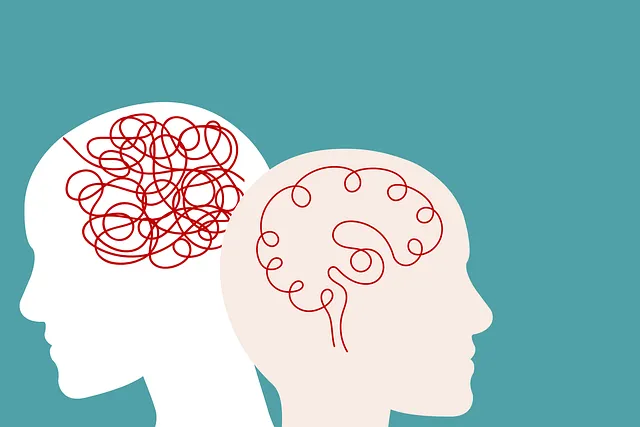Superior Kaiser Permanente mental health services utilize a holistic RFM framework—Resilience, Flexibility, Mindfulness—combining Empathy Building, Social Skills Training, and Mood Management to enhance coping mechanisms and promote well-being. Tailored exercises, incorporating evidence-based practices, cultural sensitivity, and community input, foster resilience and empathy through group sessions facilitated by trained professionals. Evaluation methods integrating qualitative and quantitative data measure improvements in patient well-being, treatment adherence, satisfaction, emotional regulation, and positive interpersonal connections.
Resilience is a cornerstone of mental well-being, and RFM (Resilience, Flexibility, and Mastery) exercises offer a promising path to enhancing it. This article explores how superior Kaiser Permanente mental health services integrate RFM principles through tailored resilience-building exercises. We’ll delve into the science behind RFM, guide you through effective exercise design, showcase Kaiser Permanente’s innovative approach, and discuss measuring the impact on patient care, providing a comprehensive overview for healthcare professionals aiming to bolster resilience.
- Understanding RFM for Mental Health Resilience
- Designing Effective Resilience Building Exercises
- Kaiser Permanente's Approach to Integration
- Measuring Success and Impact on Patient Care
Understanding RFM for Mental Health Resilience

Understanding RFM for Mental Health Resilience
At Kaiser Permanente, we strive to provide superior mental health services that empower individuals to build resilience through effective strategies. One such approach is the implementation of RFM (Resilience, Flexibility, and Mindfulness), a holistic framework designed to enhance coping mechanisms and promote overall well-being. This method focuses on fostering emotional agility, encouraging effective stress management, and cultivating empathy within individuals. By integrating Empathy Building Strategies and Social Skills Training into our programs, we help clients develop a deeper sense of self-awareness and strengthen their connections with others.
Additionally, RFM incorporates Mood Management techniques to teach individuals how to recognize and regulate their emotional states, ensuring they can navigate life’s challenges with greater ease. Through these comprehensive exercises, Kaiser Permanente aims to equip individuals with the tools needed to build resilience, fostering a sense of empowerment that extends beyond our facilities and into their daily lives.
Designing Effective Resilience Building Exercises

Designing effective resilience-building exercises is a nuanced process that requires tailored approaches to cater to diverse populations. At Kaiser Permanente, superior mental health services prioritize personalized interventions, recognizing that resilience is not one-size-fits-all. When designing such exercises, it’s crucial to incorporate evidence-based practices while considering cultural sensitivity and individual needs. For instance, group sessions focused on shared experiences can foster a sense of belonging and empathy building strategies, especially when facilitated by trained professionals who understand the unique challenges faced by different demographics.
The Mental Health Policy Analysis and Advocacy plays a pivotal role in shaping these exercises by identifying gaps in existing programs and advocating for inclusive Mental Health Education Programs Design. By integrating empirical research with community input, resilience-building initiatives can become more impactful and accessible. This holistic approach ensures that exercises are not only effective but also resonate with participants from various backgrounds, ultimately contributing to enhanced mental well-being outcomes.
Kaiser Permanente's Approach to Integration

Kaiser Permanente has emerged as a leader in integrating mental health services into its comprehensive healthcare model. Their approach emphasizes holistic well-being, recognizing that mental and physical health are intricately linked. By incorporating Mind Over Matter principles, Kaiser Permanente offers a range of resilience-building exercises and empathy-focused strategies within their patient care framework. These initiatives aim to foster not just individual resilience but also strengthen the community’s overall well-being.
Through innovative Public Awareness Campaigns Development, Kaiser Permanente reaches out to diverse populations, promoting mental health literacy and reducing stigma. Their commitment to integrating mental health services has led to improved access and outcomes for patients. This forward-thinking strategy positions Kaiser Permanente as a beacon of superior Kaiser Permanente mental health services, empowering individuals to navigate life’s challenges with enhanced resilience and emotional agility.
Measuring Success and Impact on Patient Care

Measuring the success of resilience-building exercises within mental healthcare is paramount to demonstrating their impact on patient care. Superior Kaiser Permanente mental health services, for instance, can utilize a multifaceted approach to evaluation. This includes qualitative and quantitative methods to assess changes in patient well-being, treatment adherence, and overall satisfaction with care. By integrating Compassion Cultivation Practices into the assessment framework, healthcare providers can capture improvements in emotional regulation, empathy, and positive interpersonal connections—all vital components of enhanced mental health outcomes.
The process might involve pre- and post-intervention surveys, key informant interviews, and focus groups to gather insights from patients, caregivers, and clinical staff. This data collection strategy allows for a comprehensive Mental Health Policy Analysis and Advocacy, ensuring that interventions are not only effective but also aligned with the evolving needs of diverse patient populations. Additionally, examining changes in treatment plans, medication management, and referral patterns can provide tangible evidence of improved resilience and reduced mental health symptoms, ultimately enhancing the quality of care delivered by Kaiser Permanente.
The implementation of RFM (Resilience-focused Mindfulness) exercises, as demonstrated by Kaiser Permanente’s innovative approach, offers a promising strategy for enhancing mental health care. By integrating these practices into patient programs, healthcare providers can foster resilience and significantly improve patient outcomes. This evidence-based method not only complements traditional treatments but also empowers individuals to navigate life’s challenges with greater adaptability and emotional well-being. With consistent evaluation and refinement, Superior Kaiser Permanente mental health services can continue to revolutionize care delivery, ensuring patients build enduring resilience.






